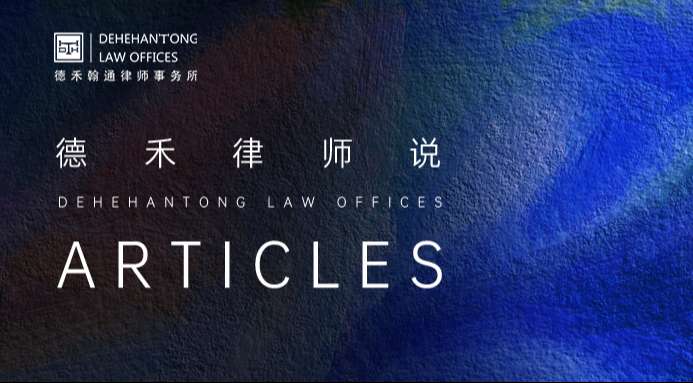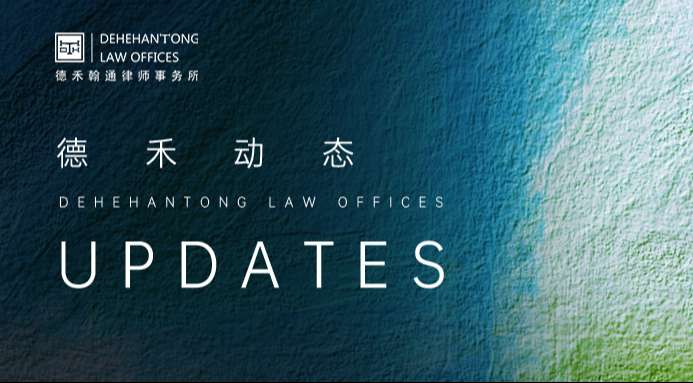Recent private fund filing feedback key points analysis
Since the Asset Management Association of China ("AMAC") issued the "Operational Guidelines for Private Equity Investment Funds" ("Operational Guidelines") on April 30, 2024, the filing of private equity funds has become increasingly stringent. (For an interpretation of the guidelines, see Counsel's opinion | "Guidelines on the Operation of Private Securities Investment Funds - Clarification and Interpretation of Key Provisions"), in August 2024, the first month of the guidelines' implementation, the number of private securities investment fund filings fell off a cliff.
According to the recent review of the feedback of the CGIF in the filing process of private funds, the author believes that the reasons for the current filing difficulties are: on the one hand, because many managers and custodians have different degrees of understanding of product filing requirements, and have received feedback from the CGIF for many times to supplement and rectify; On the other hand, the Association tends to use the feedback node of the new product filing to further understand the operation status of the managers of the long-term but not recently issued funds, which also extends the time period of product filing.
The author will sort out the issues that the Association has focused on in the recent private fund filing process to remind managers to make comprehensive preparations before fund filing.
I. Key feedback on private fund contracts
(1) Asset scale
Feedback: According to Article 4 of the Operational Guidelines, the manager is requested to agree in the fund contract that if the average net asset value of the fund in the previous year is less than 10 million yuan, the manager should disclose the way and path to the investor within 5 working days. If the average net asset value of the fund in the previous year is less than 5 million yuan, or the net asset value of the fund is less than 5 million yuan for 60 consecutive trading days, it shall stop applying for purchase and disclose it to investors within 5 working days; If the net asset value of the fund is still less than 5 million yuan for 120 consecutive trading days after stopping the application, it shall enter the liquidation procedure.
Interpretation: If the scale is less than 10 million, it must be disclosed to investors that the scale is less than 5 million and may face the risk of stopping the purchase or even liquidation. According to the feedback of the Association, the above situation should not only be disclosed to investors, but also be clearly stipulated in the fund contract.
(2) Nesting level
Feedback: The investors of the Fund include other private funds, and the investment scope of the Fund includes private funds and other asset management products, which involve at least two layers of nesting. Article 25 of the Regulations on the Supervision and Administration of Private Investment Funds has made clear requirements on the number of nesting layers of private funds, and the manager is requested to set up a reasonable product structure and not set up an unnecessary nesting structure.
Interpretation: According to the guidance caliber of the current filing window, the number of nested layers shall not exceed one layer. If the filing of a private fund involves multiple layers of nesting, the CGIAA will require the manager to issue a commitment letter to ensure that the funds for the filing and subsequent filing, from the approval of the filing to the investment operation before the liquidation of the fund, strictly check the number of nesting layers when accepting investment in other products or investing in other products. Ensure that the overall number of nesting layers does not exceed 1 layer (if it meets the conditions stipulated by the subsequent financial regulatory authorities, one layer of nesting can be exempted).
(3) Scope of investment
Feedback: The fund contract stipulates equity assets, debt, futures and derivatives according to the product type, and it is suggested that the targets in the investment scope be clearly divided according to the relevant types.
Interpretation: The "Operational Guidelines" classify private securities investment funds into equity, futures and derivatives, hybrid, fixed income, and private securities investment funds, and provide provisions on how to classify various types of funds. Therefore, the fund contract should classify the products according to the actual investment situation and the requirements of the new regulations.
(4) Open Day
Feedback: The Open Day cannot be postponed, otherwise it will cause the opening twice a week, please correct.
Interpretation: Some private equity fund managers agree in the fund contract that the opening day will be supplemented by holidays and other arrangements. Based on the above feedback from CGIAP, managers are not allowed to make such arrangements. Otherwise, it may trigger the situation of opening twice a week in disguise, in violation of the "Operational Guidelines" to open at most once a week.
(5) Valuation authorization
Feedback: In accordance with Article 28 of the Operational Guidelines, please verify whether the authorization of the Fund custodian to value the Fund's valuation information to the upper fund custodian is stipulated in the contract.
Interpretation: Although it is not mentioned in the Operational Guidelines to write the relevant information of valuation authorization into the fund contract, according to the feedback of the China Foundation Association, if the fund investors have FOF products, then the manager should agree in the fund contract to authorize the fund custodian to provide valuation information to the custodian of the upper FOF products. According to the window guidance caliber, the fund valuation information refers to the valuation information that contains the position, that is, the 4-level valuation table.
Ii. Feedback on the long-term operation of private fund managers
(1) Information update
Feedback: The actual controller of the manager, the controlling shareholder and the main investor's investment situation, basic information and changes, etc., and whether the information is updated in the association.
Interpretation: It is suggested that the manager self-check whether the investor's investment information is accurate and complete, and if the manager has not paid more than 10 million yuan, it is easy not to change the paid-in investment. At the same time, the manager needs to pay attention to whether the information is submitted in accordance with the requirements of the Association - the information of the investors, the actual controller and other industrial and commercial publicity information and the actual business information such as the office space need to be updated in the AMBERS system in a timely manner. For the rectification method of the inconsistency between public information and industrial and commercial information, please refer to another article of the author "Latest reminder of the Association of China Foundations: The information submitted by private fund managers in the AMBERS system is inconsistent with the industrial and commercial information, and it needs to be corrected in time to ensure the unification of the two."
(2) Internal governance
Feedback: Manager's internal structure, division of responsibilities, completeness and effectiveness of internal control system.
Interpretation: The Association is mainly concerned about the personnel situation within the manager and whether the internal control system is complete and effective operation. Recently, with the frequent occurrence of new regulations in the field of private funds, the supplement, revision and update of the manager's internal control system should also be put on the agenda, and the manager should arrange special personnel to effectively implement and implement the operation of the system.
(3) Investment experience
Feedback: Historical experience of senior management and investment research team, employment history, and whether they have investment experience consistent with the investment strategy of the proposed product.
Interpretation: The Association is concerned about whether the investment strategy of the products to be filed can be effectively implemented. If the senior management and the investment research team have no experience in the past that is relatively compatible with the investment strategy, the Association will ask the manager to explain the rationality of how to implement the investment strategy.
(4) Employment situation
Feedback: Whether the manager has the business personnel needed to carry out the private fund management business (the number of full-time employees is not less than 5), and upload the labor contract of all employees, the social security payment certificate of each employee in the past two years and the salary statement, and the social security record should be stamped with the official seal of the social security institution. If the employee's social security is paid by a third-party institution, the employee's labor contract, social security payment record and the personnel entrustment contract signed by the manager and the agent shall be uploaded.
Interpretation: The feedback on the company's employment situation is generally for managers who have a longer duration and have not recently issued products. Cca is concerned about the rationality of managers who do not show business for a long time but suddenly file funds, and use this to check the operation of the company. Back 2 years of social security records, salary flow, in order to remind managers to continue to pay attention to the compliance of the company's operations, to avoid the impact of tracing historical materials and exhibition planning.
(5) Office space
Feedback: Does the manager have an independent and stable office space and upload the house rental contract?
Interpretation: Some managers frequently change the office address or fail to timely update the actual office address registered in the AMBERS system, resulting in the situation of being identified as lost contact by the CGIBA. Managers need to pay close attention to the synchronization of information in the CGIAP system after the update.
(6) Financial status
Feedback: Whether the relevant funds of the manager can cover daily operating expenses such as reasonable labor compensation and house rent over a period of time, and upload the audited financial report of the previous year.
Interpretation: CGIAA is concerned about the fund situation of the manager and whether it has sufficient fund operation capacity. If the manager has insufficient liquidity to cover the operating expenses for the next 6 months, it shall provide instructions on how to meet the subsequent operating requirements. At the same time, the manager needs to consider whether to increase the paid-in contribution (in the case of changes, to meet the minimum paid-in contribution of 10 million).
(7) Specialized operation
Feedback: Please ask the manager to provide the company's capital statement in the last 5 years, the company's capital statement needs to be stamped by the bank, and send a letter to comb the transactions with frequent exchanges (three or more) and a single transaction with a large amount (more than 100,000 yuan), and explain the specific transaction situation in detail.
Interpretation: CGIAA is concerned about whether managers adhere to professional operations. If the manager is engaged in business unrelated to the private fund business in the past, such as lending, investment consulting, etc., it is necessary to explain in detail the reasons and rationality of such business.
(8) Rationality of exhibition business
Feedback: Reasons and reasonableness of long-term non-exhibition and newly filed fund, as well as subsequent exhibition plans, etc.
Interpretation: The Association is mainly concerned about the manager's sudden filing of funds in the case of long-term non-exhibition, whether the filed fund is compatible with the development of the company, and whether there is a practical exhibition plan in the future. In this regard, the manager is requested to carefully consider the rationality of the record fund and future development planning.
3. Advice from lawyers
First of all, a comprehensive understanding of the direction of the new private fund regulations, according to regulatory requirements to determine the relevant content of the fund contract. Especially for the detailed content requirements of the terms of private equity investment funds, it is recommended that the manager and the custodian/professional lawyers jointly check and modify.
Secondly, for managers who have not exhibited the industry for a long time but have recently filed fund products, it is recommended to conduct a self-examination of the company's situation to ensure that the past exhibition industry is compliant, and the issuance of new products has reasonable reasons and a clear development plan, and then proceed to promote the filing work.
4. Conclusion
Since May 1, 2023, the private equity industry has entered the era of destocking, both manager registration and new product filing have shown a stricter situation. In this context, stock managers should cherish the hard-won manager qualifications, care for feathers, and continue to pay attention to regulatory dynamics and the compliance of their own operations.
Finally, borrow Churchill's famous words in "The Darkest Hour" to share with you: success does not matter, failure is not fatal. Have the courage to go on, is the most valuable!
Recommended Information
-
UpdatesDehehantong participated in the celebration of the 75th anniversary of the founding of New China2024-09-29
-
ArticlesAn analysis of founder's personal repurchase responsibility under the buyback wave2024-09-27
-
Case Studies6 Reflections on commercial dispute resolution cases behind case number2024-09-26
-
ArticlesInterpretation of the core terms of the investment Agreement (I) - the right of first refusal and the right of joint sale2024-09-25
-
UpdatesDehehantong successfully warehousing China Communications Shanghai Shipping Bureau Co., LTD2024-09-25















